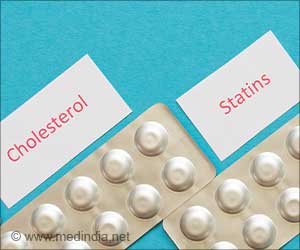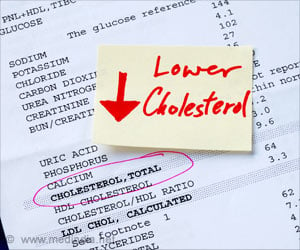Researchers at the University of Pennsylvania School of Medicine have demonstrated the potential of a new type of therapy for patients who suffer from high cholesterol levels.
The findings are in the January issue of the New England Journal of Medicine (NEJM). In this study, patients with homozygous familial hypercholesterolemia (FH), a high-risk condition refractory to conventional therapy, had a remarkable 51% reduction in low-density lipoprotein (LDL) or “bad cholesterol” levels."Our study shows that targeted inhibition of the microsomal triglyceride transfer protein (MTP) is highly effective in reducing cholesterol levels in these very high risk patients,” stated Daniel J. Rader, MD, Director of Preventive Cardiology and the Clinical and Translational Research Center at Penn, and principal investigator of this study. “Furthermore, there are many other patients who have cholesterol levels that are difficult to treat or who are not tolerant to treatment with statins. New therapies are required for these patients as well, and it is possible that after further research MTP inhibition could eventually be used for such patients.”
Genetic defects in MTP lead to profoundly low levels of LDL. Using this information, Bristol-Myers Squibb began to search for inhibitors of this protein and discovered the study drug, originally known as BMS-201038. Bristol-Myers Squibb then donated it to Penn for use in clinical trials in patients with severe cholesterol problems. Rader and his team at Penn designed and carried out the current study in homozygous FH patients with support from the Doris Duke Charitable Foundation. Due to the success in this study, Penn has licensed the drug to Aegerion Pharmaceuticals Inc for further development as AEGR-733.
Patients who suffer from homozygous FH typically respond poorly to standard drug therapy and have a very high risk of premature cardiovascular disease.
Homozygous FH is caused by loss-of-function mutations in both alleles of the LDL receptor gene. It is a rare form of hypercholesterolemia affecting approximately one in every million people. Patients with this disorder typically have plasma cholesterol levels of more than 500 mg per deciliter. If untreated, patients develop cardiovascular disease before they are 20-years-old and generally do not live past the age of 30. Because existing cholesterol lowering drugs are relatively ineffective in this patient population, new therapies to reduce LDL levels are needed.
In this study, researchers conducted a dose-escalation study to examine the safety, tolerability and effects on lipid levels of an inhibitor of MTP in six patients with homozygous FH. Patients received the MTP inhibitor at four different doses, each for four weeks, and returned for a final visit after an additional four-week drug washout period. Analysis of lipid levels, safety laboratory analyses, and magnetic resonance imaging of the liver for hepatic fat content were performed throughout the study. All patients tolerated titration to the highest dose studied. In addition to the 51% reduction in LDL cholesterol, treatment at this dose also decreased total cholesterol levels by 58%, triglyceride levels by 65% and apolipoprotein B levels by 56% from baseline. In contrast to statin drugs, which have relatively little effect on cholesterol levels in homozygous FH patients, the MTP inhibitor was shown to reduce the liver’s ability to produce LDL. The most notable adverse events in the study were loose stools and elevation of liver transaminase levels and accumulation of hepatic fat in some but not all of the patients studied.
Advertisement
Rader points out that this study is a superb example of “translational research” in which discoveries in basic science are “translated” into use in humans for the development of novel therapies. Rader is an internationally recognized leader in translational research in the areas of cholesterol metabolism and heart disease prevention. Penn recently created a new Cardiovascular Institute that is charged with promoting translational research in the diagnosis, treatment, and prevention of cardiovascular disease. Additionally, Penn was recently awarded a large NIH grant to foster the further development of translational research under the auspices of the newly created Institute for Translational Medicine and Therapeutics.
Advertisement
SRM











